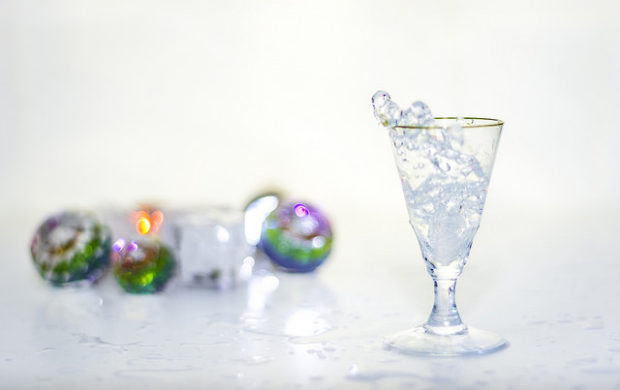This is day 4 of our 30 day series “30 Simple Things to Do to Change Your Life in 30 Days. If you missed a day, links to previous articles follow this article.
We’ve all heard it a million times: drink more water! But how many of us actually take hydration seriously? Staying hydrated is one of the simplest things you can do to improve your physical and mental well-being, yet it’s often overlooked in the hustle and bustle of everyday life. While drinking enough water might seem like a minor habit, its impact on your energy, focus, and overall health is profound.
Today, on Day 4 of this 30-day challenge, we’ll explore the undeniable benefits of staying hydrated and clear up some common myths about how much water you actually need.
Why Staying Hydrated is Essential
Water is the foundation of life—our bodies are made up of about 60% water, and it’s involved in nearly every bodily function. From regulating temperature and aiding digestion to transporting nutrients and flushing out toxins, water is crucial to keeping us running smoothly. Here are some of the key benefits of staying hydrated:
1. Boosts Energy and Relieves Fatigue
If you’re feeling sluggish or tired throughout the day, dehydration could be the culprit. Even mild dehydration can lead to a drop in energy levels and cognitive function. Drinking water keeps your body functioning properly, allowing you to maintain energy and focus throughout the day.
2. Improves Cognitive Function
Your brain relies on proper hydration to function efficiently. When you’re dehydrated, it can affect your memory, concentration, and overall mental clarity. Staying hydrated supports better focus and productivity, making it easier to stay sharp and get through tasks.
3. Supports Digestion and Metabolism
Water plays a vital role in digestion by helping break down food and absorb nutrients. It also helps prevent constipation and bloating by keeping everything moving through your digestive system. Proper hydration can even give your metabolism a boost, helping you maintain a healthy weight.
4. Enhances Physical Performance
Whether you’re exercising or simply going about your day, staying hydrated is essential for physical performance. Dehydration can lead to muscle cramps, dizziness, and fatigue. By drinking enough water, you ensure that your muscles and joints function smoothly, and you reduce the risk of injury.
5. Keeps Skin Healthy
Water is crucial for maintaining healthy skin. Staying hydrated helps your skin retain its elasticity, reduces dryness, and can even improve your complexion. While it’s not a magic solution for perfect skin, drinking water is one of the simplest ways to support a glowing, healthy appearance.
6. Flushes Out Toxins
Water helps your body naturally detoxify by aiding the kidneys in flushing out waste and toxins. Staying hydrated keeps your organs functioning at their best and prevents issues like kidney stones and urinary tract infections.
Common Myths About Hydration
While the importance of hydration is undeniable, there’s a lot of misinformation floating around about how much water you actually need and how to stay hydrated. Let’s break down some common myths.
Myth 1: You Need to Drink 8 Glasses of Water a Day
One of the most common myths is that everyone needs to drink eight 8-ounce glasses of water a day (about 2 liters or half a gallon). The truth is, hydration needs vary depending on your body, activity level, climate, and other factors. While eight glasses might be a good general guideline, the best way to determine if you’re drinking enough water is to listen to your body—thirst is a good indicator—and check the color of your urine. If it’s pale yellow, you’re likely well-hydrated.
Myth 2: Coffee and Tea Dehydrate You
While it’s true that caffeine has a mild diuretic effect, meaning it can make you urinate more frequently, drinking coffee or tea doesn’t dehydrate you. The water content in these beverages still contributes to your daily fluid intake. As long as you’re not overdoing the caffeine, coffee and tea can be part of a healthy hydration routine.
Myth 3: You Can Only Hydrate with Water
While water is the best and most natural way to stay hydrated, it’s not the only option. Many foods, especially fruits and vegetables, contain a high water content. Cucumbers, watermelon, oranges, and strawberries, for example, can all help keep you hydrated. Additionally, soups, broths, and herbal teas are great alternatives for increasing your fluid intake.
Myth 4: You Can’t Overhydrate
While rare, it is possible to drink too much water, leading to a condition called hyponatremia, where the sodium levels in your blood become dangerously low. This usually happens in extreme cases, such as during endurance sports or when people drink excessive amounts of water in a short period. The key is balance—drink enough water to stay hydrated, but don’t overdo it.
How to Stay Hydrated Throughout the Day
Making hydration a regular habit doesn’t have to be complicated. Here are a few simple strategies to help you stay on top of your water intake:
1. Start Your Day with Water
After a night’s sleep, your body is naturally dehydrated. Drinking a glass of water first thing in the morning kickstarts your metabolism and helps you feel refreshed and alert.
2. Carry a Water Bottle with You
One of the easiest ways to make sure you’re drinking enough water is to carry a reusable water bottle wherever you go. This constant reminder helps you sip water throughout the day without having to think about it.
3. Set Hydration Goals
If you find it challenging to drink enough water, try setting small hydration goals for the day. For example, aim to drink a certain amount by lunchtime or set reminders on your phone to take a few sips every hour.
4. Eat Hydrating Foods
Incorporate water-rich foods like cucumbers, melons, and leafy greens into your meals. These foods not only hydrate you but also provide essential nutrients that contribute to overall health.
5. Listen to Your Body
Pay attention to how your body feels. If you’re thirsty, have a headache, or feel fatigued, it could be a sign that you need more water. Learn to recognize these early signs of dehydration so you can take action before it becomes a problem.
Start Today: Make Hydration a Habit
Staying hydrated is one of the simplest yet most impactful ways to support your overall health. By making a conscious effort to drink enough water and include hydrating foods in your diet, you’ll enjoy benefits like better energy, clearer thinking, and improved physical performance.
Remember, it’s not about drinking a set number of glasses each day—it’s about staying in tune with your body and providing it with the fluids it needs to function at its best. So today, grab that water bottle, start sipping, and make hydration a habit that helps you feel better every day.
Are you ready to start hydrating for a healthier, more energetic life? Your body will thank you!
Previous articles in this series can be found here:
Publisher: Source link











